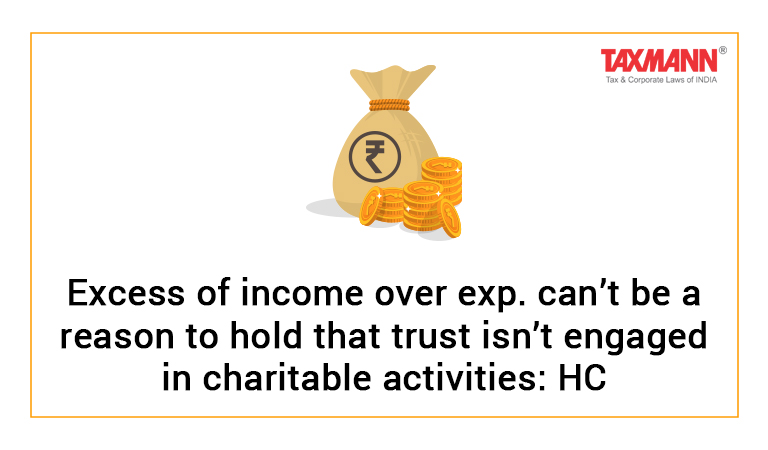Excess of income over exp. can’t be a reason to hold that trust isn’t engaged in charitable activities: HC
- Blog|News|Income Tax|
- 2 Min Read
- By Taxmann
- |
- Last Updated on 26 August, 2021

Case details: CIT v. Angels Educational Trust - [2021] 129 taxmann.com 305 (Madras)
Judiciary and Counsel Details
-
- T.S. Sivagnanam and Sathi Kumar Sukumara Kurup, JJ.
- J. Narayanaswamy, Sr. Standing Counsel for the Appellant.
- R. Sivaraman for the Respondent.
Facts of the Case
The principal object of the assessee-Trust was established and administering Matriculation School offering education both in Tamil and English medium. It has also established a Teachers Training College. It applied for registration under section 12AA. However, the Commission of Income-tax (CIT) rejected the application.
It was stated in the order that the income for four financial years was taken into consideration and noting the figures, it was found that the income of the trust was in excess of expenditure for both the educational institutions. Thus, it can be concluded that the trust was established with a clear motive of earning profits.
Trust preferred an appeal before the Tribunal and tribunal ruled in favour of assessee. Aggrieved-CIT filed the instant appeal before the Madras High Court.
High Court held
The Madras High Court held that the CIT had not brought down any material on record to show that assessee-trust was motivated by earning profit. The Tribunal was right in its observation that excess of income over expenditure by itself is not a reason to hold that the assessee-Trust is not engaged in charitable activities.
Furthermore, there was no finding that the Trustees had applied the monies of the Trust for their personal benefit or any other purpose other than education. The infrastructure facilities, which were provided by the assessee-Trust were also rightly taken note of by the Tribunal.
Disclaimer: The content/information published on the website is only for general information of the user and shall not be construed as legal advice. While the Taxmann has exercised reasonable efforts to ensure the veracity of information/content published, Taxmann shall be under no liability in any manner whatsoever for incorrect information, if any.

Taxmann Publications has a dedicated in-house Research & Editorial Team. This team consists of a team of Chartered Accountants, Company Secretaries, and Lawyers. This team works under the guidance and supervision of editor-in-chief Mr Rakesh Bhargava.
The Research and Editorial Team is responsible for developing reliable and accurate content for the readers. The team follows the six-sigma approach to achieve the benchmark of zero error in its publications and research platforms. The team ensures that the following publication guidelines are thoroughly followed while developing the content:
- The statutory material is obtained only from the authorized and reliable sources
- All the latest developments in the judicial and legislative fields are covered
- Prepare the analytical write-ups on current, controversial, and important issues to help the readers to understand the concept and its implications
- Every content published by Taxmann is complete, accurate and lucid
- All evidence-based statements are supported with proper reference to Section, Circular No., Notification No. or citations
- The golden rules of grammar, style and consistency are thoroughly followed
- Font and size that’s easy to read and remain consistent across all imprint and digital publications are applied



 CA | CS | CMA
CA | CS | CMA
